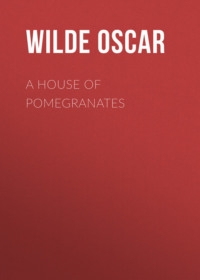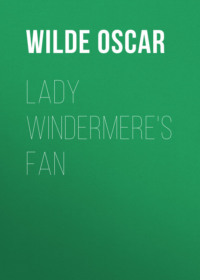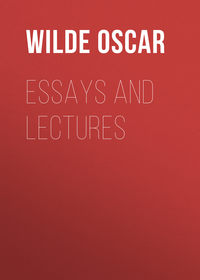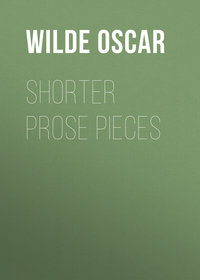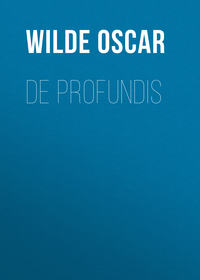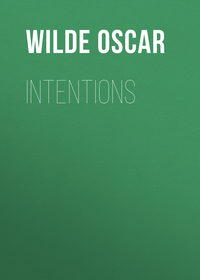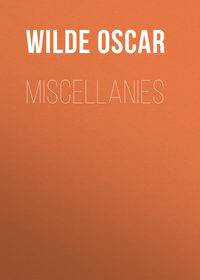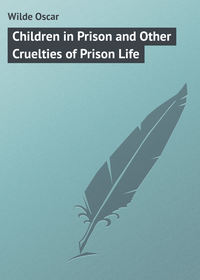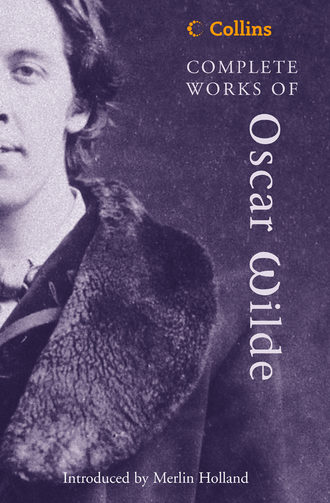
Полная версия
Complete Works of Oscar Wilde
His sons were a projected audience for the stories, but not an imaginary one. He was already singing them to sleep with lullabies in the Irish language. We have therefore to think of Wilde’s rebellion against Victorian materialism being partially grounded in the older cultures that materialism claimed to supersede. He could play games with the English language because he stood on its frontier; however limited his Irish he was profoundly aware of it. It is noteworthy that the two most successful adaptations of Wilde’s work into another language are Patrick Pearse’s into Irish: Iosagán and Eoghainín na nÉan from ‘The Selfish Giant’ and ‘The Happy Prince’. Pearse was borrowing from a source Puritan Ireland forbad his acknowledging, but he was also taking the spirit of the stories back to the tongue whence it came.
Wilde in London society or in Paris Bohemia might seem far from Irish roots, but his impact was still that of the story-teller even when the story might be compressed into a sentence. And however clothed in raiment acceptable to fashionable London, the stories in almost all cases travel back to a Celtic folk-world dominated by ghosts and God: the Man Predestined to be a Murderer, the Murderer whose only Salvation can come from the Selfsacrifice of an Innocent, the Salvation of Body by Damnation of Soul – strange but undeniable descriptions of ‘Lord Arthur Savile’s Crime’, of ‘The Canterville Ghost’, and of The Picture of Dorian Gray. They sparkle with comedy and epigrams; they toy with philosophy and lightly flick off profound social comment; they martial incidental figures with the precision of point visible in the pencils of his reluctant disciple Beardsley and his rebellious disciple Beerbohm. But go to the hearts of the stories and they play with ideas as old as time and as deep as hell, and yet may hope from time to time for heaven.
The true folk story rejects any genre division between comedy and tragedy just as the miracle play fell on its knees in slapstick and remained on them in worship. Wilde knew – and was ultimately to prove (as one may see from Toulouse-Lautrec’s portrait) – that there is no tragedy greater than that of the weeping clown. Hamlet, Othello, Lear and Macbeth are either conscious or unconscious clowns at various times, and are set in deliberately comic contexts here and there. ‘Lord Arthur Savile’s Crime’ speaks of how ‘Our Guildensterns play Hamlet for us, and our Hamlets have to jest like Prince Hal. The world is a stage, but the play is badly cast.’ But Wilde also acknowledged the philosopher in Falstaff and the buffoon in Hamlet. So his own Canterville Ghost might render his audience defenceless by paralysing it with farce, and then strike with pity; and his ‘Lord Arthur Savile’s Crime’ promenades on the verge of horror before saving its reader in laughter; and Dorian Gray goes to his death as we are still smiling over grace-notes of satire such as ‘young Lord Poole, Bournemouth’s eldest son’.
The last line no doubt inspired Evelyn Waugh’s Lord Tangent, son of Lord Circumference, destined to die so comically, just as Wilde inaugurates the wit of so many other comparable figures in our century from ‘Saki’ to Joe Orton, but unlike most of them it is not a wit which takes any pleasure in suffering and it holds out – far more than does the formally Roman Catholic Waugh – continual if desperate hopes of salvation. In their different ways the four stories of A House of Pomegranates turn on those hopes, even if the young King can only find it by the recognition of suffering, and the Star-Child by himself suffering enough to cut short his life, while the Dwarf and the Fisherman can only be saved by death itself. The satire on predestination in ‘Lord Arthur Savile’s Crime’ is subsequently asserted in explicit language in The Picture of Dorian Gray: Dorian Gray can save himself, enchantment or no, but fails because he will not separate repentance from hypocrisy while it is in his power to do so. Perhaps the most neglected biographical item in Oscar Wilde’s life is that he was the nephew of three clergymen.
The origin of the stories in the art of story-telling accounts for one of their most startling dichotomies – dialogue and description. The exotic catalogues of outré phenomena might seem almost the antithesis of the rippling, quicksilver dialogue: but we must remember the catalogues were conceived of as spoken, as are those in Homer. Persons with access to a film of Micheál Mac Liammóir’s The Importance of Being Oscar can appreciate it from his rolling French rendition of Herod’s jewel speech in Salome. If a story’s pace seems to slow down in the reading of narrative, read it aloud. The dialogue of the stories is story-teller craft in itself, by a story-teller with a great gift for varying voices: in Dorian Gray, among other things, one can see the great modern master of comedy bursting the constraints of prose in his anxiety to realise himself fully in the theatre.
But the underlying question on how far the story is the narrator, and the work of art its performer, reaches its most subtle expression in the enlarged Portrait of Mr W. H. over which Wilde laboured for five years only to have its full version vanish from sight at the time of his trial. Wilde has, idiotically, been called a snob; but when it comes to snobbery, everyone – or almost everyone – was out of step but our Oscar. Scholarship virtually united in crediting Shakespeare with an Earl as the recipient of his sonnets: scholars split one another’s hairs as to which Earl, but agreed that it must be some Earl. Wilde insisted that the obvious place to look was in the poet’s own profession, and the obvious context the performance of his plays. Having found the most likely solution he then charmingly played with the emotional pressures of conviction in a scholarly thesis. Conversion brings loss of the converter’s faith, much as in the old folk stories the granting of a wish bankrupts its recipient. And we are left asking whether Shakespeare must remain in perpetual dependence on the Mr W. H. who interprets him just as Wilde can only be kept alive by his readers. But Mr W. H. was a boy actor, and Wilde’s future is in no doubt when left in the hands of the children. The converse is equally true: unless we be as little children we shall never fully enter the kingdom of Oscar Wilde.
THE PICTURE OF DORIAN GRAY
The Preface
THE artist is the creator of beautiful things.
To reveal art and conceal the artist is art’s aim.
The critic is he who can translate into another manner or a new material his impression of beautiful things.
The highest, as the lowest, form of criticism is a mode of autobiography.
Those who find ugly meanings in beautiful things are corrupt without being charming. This is a fault.
Those who find beautiful meanings in beautiful things are the cultivated. For these there is hope.
They are the elect to whom beautiful things mean only Beauty.
There is no such thing as a moral or an immoral book.
Books are well written, or badly written. That is all.
The nineteenth century dislike of Realism is the rage of Caliban seeing his own face in a glass.
The nineteenth century dislike of Romanticism is the rage of Caliban not seeing his own face in a glass.
The moral life of man forms part of the subject-matter of the artist, but the morality of art consists in the perfect use of an imperfect medium. No artist desires to prove anything. Even things that are true can be proved.
No artist has ethical sympathies. An ethical sympathy in an artist is an unpardonable mannerism of style.
No artist is ever morbid. The artist can express everything.
Thought and language are to the artist instruments of an art.
Vice and virtue are to the artist materials for an art.
From the point of view of form, the type of all the arts is the art of the musician. From the point of view of feeling, the actor’s craft is the type.
All art is at once surface and symbol.
Those who go beneath the surface do so at their peril.
Those who read the symbol do so at their peril.
It is the spectator, and not life, that art really mirrors.
Diversity of opinion about a work of art shows that the work is new, complex, and vital.
When critics disagree the artist is in accord with himself.
We can forgive a man for making a useful thing as long as he does not admire it. The only excuse for making a useless thing is that one admires it intensely.
All art is quite useless.
1
THE studio was filled with the rich odour of roses, and when the light summer wind stirred amidst the trees of the garden, there came through the open door the heavy scent of the lilac, or the more delicate perfume of the pinkflowering thorn.
From the corner of the divan of Persian saddle-bags on which he was lying, smoking, as was his custom, innumerable cigarettes, Lord Henry Wotton could just catch the gleam of the honey-sweet and honey-coloured blossoms of a laburnum, whose tremulous branches seemed hardly able to bear the burden of a beauty so flame-like as theirs; and now and then the fantastic shadows of birds in flight flitted across the long tussore-silk curtains that were stretched in front of the huge window, producing a kind of momentary Japanese effect, and making him think of those pallid jade-faced painters of Tokio who, through the medium of an art that is necessarily immobile, seek to convey the sense of swiftness and motion. The sullen murmur of the bees shouldering their way through the long unmown grass, or circling with monotonous insistence round the dusty gilt horns of the straggling woodbine, seemed to make the stillness more oppressive. The dim roar of London was like the bourdon note of a distant organ.
In the centre of the room, clamped to an upright easel, stood the full-length portrait of a young man of extraordinary personal beauty, and in front of it, some little distance away, was sitting the artist himself, Basil Hallward, whose sudden disappearance some years ago caused, at the time, such public excitement, and gave rise to so many strange conjectures.
As the painter looked at the gracious and comely form he had so skilfully mirrored in his art, a smile of pleasure passed across his face, and seemed about to linger there. But he suddenly started up, and, closing his eyes, placed his fingers upon the lids, as though he sought to imprison within his brain some curious dream from which he feared he might awake.
‘It is your best work, Basil, the best thing you have ever done,’ said Lord Henry, languidly. ‘You must certainly send it next year to the Grosvenor. The Academy is too large and too vulgar. Whenever I have gone there, there have been either so many people that I have not been able to see the pictures, which was dreadful, or so many pictures that I have not been able to see the people, which was worse. The Grosvenor is really the only place.’
‘I don’t think I shall send it anywhere,’ he answered, tossing his head back in that odd way that used to make his friends laugh at him at Oxford. ‘No: I won’t send it anywhere.’
Lord Henry elevated his eyebrows, and looked at him in amazement through the thin blue wreaths of smoke that curled up in such fanciful whirls from his heavy opium-tainted cigarette. ‘Not send it anywhere? My dear fellow, why? Have you any reason? What odd chaps you painters are! You do anything in the world to gain a reputation. As soon as you have one, you seem to want to throw it away. It is silly of you, for there is only one thing in the world worse than being talked about, and that is not being talked about. A portrait like this would set you far above all the young men in England, and make the old men quite jealous, if old men are ever capable of any emotion.’
‘I know you will laugh at me,’ he replied, ‘but I really can’t exhibit it. I have put too much of myself into it.’
Lord Henry stretched himself out on the divan and laughed.
‘Yes, I knew you would; but it is quite true, all the same.’
‘Too much of yourself in it! Upon my word, Basil, I didn’t know you were so vain; and I really can’t see any resemblance between you, with your rugged strong face and your coal-black hair, and this young Adonis, who looks as if he was made out of ivory and rose-leaves. Why, my dear Basil, he is a Narcissus, and you – well, of course you have an intellectual expression, and all that. But beauty, real beauty, ends where an intellectual expression begins. Intellect is in itself a mode of exaggeration, and destroys the harmony of any face. The moment one sits down to think, one becomes all nose, or all forehead, or something horrid. Look at the successful men in any of the learned professions. How perfectly hideous they are! Except, of course, in the Church. But then in the Church they don’t think. A bishop keeps on saying at the age of eighty what he was told to say when he was a boy of eighteen, and as a natural consequence he always looks absolutely delightful. Your mysterious young friend, whose name you have never told me, but whose picture really fascinates me, never thinks. I feel quite sure of that. He is some brainless, beautiful creature, who should be always here in winter when we have no flowers to look at, and always here in summer when we want something to chill our intelligence. Don’t flatter yourself, Basil: you are not in the least like him.’
‘You don’t understand me, Harry,’ answered the artist. ‘Of course I am not like him. I know that perfectly well. Indeed, I should be sorry to look like him. You shrug your shoulders? I am telling you the truth. There is a fatality about all physical and intellectual distinction, the sort of fatality that seems to dog through history the faltering steps of kings. It is better not to be different from one’s fellows. The ugly and the stupid have the best of it in this world. They can sit at their ease and gape at the play. If they know nothing of victory, they are at least spared the knowledge of defeat. They live as we all should live, undisturbed, indifferent, and without disquiet. They neither bring ruin upon others, nor ever receive it from alien hands. Your rank and wealth, Harry; my brains, such as they are – my art, whatever it may be worth; Dorian Gray’s good looks – we shall all suffer for what the gods have given us, suffer terribly.’
‘Dorian Gray? Is that his name?’ asked Lord Henry, walking across the studio towards Basil Hall ward.
‘Yes, that is his name. I didn’t intend to tell it to you.’
‘But why not?’
‘Oh, I can’t explain. When I like people immensely I never tell their names to any one. It is like surrendering a part of them. I have grown to love secrecy. It seems to be the one thing that can make modern life mysterious or marvellous to us. The commonest thing is delightful if one only hides it. When I leave town now I never tell my people where I am going. If I did, I would lose all my pleasure. It is a silly habit, I dare say, but somehow it seems to bring a great deal of romance into one’s life. I suppose you think me awfully foolish about it?’
‘Not at all,’ answered Lord Henry, ‘not at all, my dear Basil. You seem to forget that I am married, and the one charm of marriage is that it makes a life of deception absolutely necessary for both parties. I never know where my wife is, and my wife never knows what I am doing. When we meet – we do meet occasionally, when we dine out together, or go down to the Duke’s – we tell each other the most absurd stories with the most serious faces. My wife is very good at it – much better, in fact, than I am. She never gets confused over her dates, and I always do. But when she does find me out, she makes no row at all. I sometimes wish she would; but she merely laughs at me.’
‘I hate the way you talk about your married life, Harry,’ said Basil Hallward, strolling towards the door that led into the garden. ‘I believe that you are really a very good husband, but that you are thoroughly ashamed of your own virtues. You are an extraordinary fellow. You never say a moral thing, and you never do a wrong thing. Your cynicism is simply a pose.’
‘Being natural is simply a pose, and the most irritating pose I know,’ cried Lord Henry, laughing; and the two young men went out into the garden together, and ensconced themselves on a long bamboo seat that stood in the shade of a tall laurel bush. The sunlight slipped over the polished leaves. In the grass white daisies were tremulous.
After a pause, Lord Henry pulled out his watch. ‘I am afraid I must be going, Basil,’ he murmured, ‘and before I go, I insist on your answering a question I put to you some time ago.’
‘What is that?’ said the painter, keeping his eyes fixed on the ground.
‘You know quite well.’
‘I do not, Harry.’
‘Well, I will tell you what it is. I want you to explain to me why you won’t exhibit Dorian Gray’s picture. I want the real reason.’
‘I told you the real reason.’
‘No, you did not. You said it was because there was too much of yourself in it. Now, that is childish.’
‘Harry,’ said Basil Hallward, looking him straight in the face, ‘every portrait that is painted with feeling is a portrait of the artist, not of the sitter. The sitter is merely the accident, the occasion. It is not he who is revealed by the painter; it is rather the painter who, on the coloured canvas, reveals himself. The reason I will not exhibit this picture is that I am afraid that I have shown in it the secret of my own soul.’
Lord Henry laughed. ‘And what is that?’ he asked.
‘I will tell you,’ said Hallward; but an expression of perplexity came over his face.
‘I am all expectation, Basil,’ continued his companion, glancing at him.
‘Oh, there is really very little to tell, Harry,’ answered the painter; ‘and I am afraid you will hardly understand it. Perhaps you will hardly believe it.’
Lord Henry smiled, and, leaning down, plucked a pink-petalled daisy from the grass, and examined it. ‘I am quite sure I shall understand it,’ he replied, gazing intently at the little golden white-feathered disk, ‘and as for believing things, I can believe anything, provided that it is quite incredible.’
The wind shook some blossoms from the trees, and the heavy lilacblooms, with their clustering stars, moved to and fro in the languid air. A grasshopper began to chirrup by the wall, and like a blue thread a long thin dragon-fly floated past on its brown gauze wings. Lord Henry felt as if he could hear Basil Hall ward’s heart beating, and wondered what was coming.
‘The story is simply this,’ said the painter after some time. ‘Two months ago I went to a crush at Lady Brandon’s. You know we poor artists have to show ourselves in society from time to time, just to remind the public that we are not savages. With an evening coat and a white tie, as you told me once, anybody, even a stockbroker, can gain a reputation for being civilised. Well, after I had been in the room about ten minutes, talking to huge overdressed dowagers and tedious Academicians, I suddenly became conscious that some one was looking at me. I turned half-way round, and saw Dorian Gray for the first time. When our eyes met, I felt that I was growing pale. A curious sensation of terror came over me. I knew that I had come face to face with some one whose mere personality was so fascinating that, if I allowed it to do so, it would absorb my whole nature, my whole soul, my very art itself. I did not want any external influence in my life. You know yourself, Harry, how independent I am by nature. I have always been my own master; had at least always been so, till I met Dorian Gray. Then – but I don’t know how to explain it to you. Something seemed to tell me that I was on the verge of a terrible crisis in my life. I had a strange feeling that Fate had in store for me exquisite joys and exquisite sorrows. I grew afraid, and turned to quit the room. It was not conscience that made me do so; it was a sort of cowardice. I take no credit to myself for trying to escape.’
‘Conscience and cowardice are really the same things, Basil. Conscience is the trade-name of the firm. That is all.’
‘I don’t believe that, Harry, and I don’t believe you do either. However, whatever was my motive – and it may have been pride, for I used to be very proud – I certainly struggled to the door. There, of course, I stumbled against Lady Brandon. “You are not going to run away so soon, Mr. Hallward?” she screamed out. You know her curiously shrill voice?’
‘Yes; she is a peacock in everything but beauty,’ said Lord Henry, pulling the daisy to bits with his long, nervous fingers.
‘I could not get rid of her. She brought me up to Royalties, and people with Stars and Garters, and elderly ladies with gigantic tiaras and parrot noses. She spoke of me as her dearest friend. I had only met her once before, but she took it into her head to lionise me. I believe some picture of mine had made a great success at the time, at least had been chattered about in the penny newspapers, which is the nineteenth-century standard of immortality. Suddenly I found myself face to face with the young man whose personality had so strangely stirred me. We were quite close, almost touching. Our eyes met again. It was reckless of me, but I asked Lady Brandon to introduce me to him. Perhaps it was not so reckless, after all. It was simply inevitable. We would have spoken to each other without any introduction. I am sure of that. Dorian told me so afterwards. He, too, felt that we were destined to know each other.’
‘And how did Lady Brandon describe this wonderful young man?’ asked his companion. ‘I know she goes in for giving a rapid précis of all her guests. I remember her bringing me up to a truculent and red-faced old gentleman covered all over with orders and ribbons, and hissing into my ear, in a tragic whisper which must have been perfectly audible to everybody in the room, the most astounding details. I simply fled. I like to find out people for myself. But Lady Brandon treats her guests exactly as an auctioneer treats his goods. She either explains them entirely away, or tells one everything about them except what one wants to know.’
‘Poor Lady Brandon! You are hard on her, Harry!’ said Hallward, listlessly.
‘My dear fellow, she tried to found a salon, and only succeeded in opening a restaurant. How could I admire her? But tell me, what did she say about Mr. Dorian Gray?’
‘Oh, something like, “Charming boy – poor dear mother and I absolutely inseparable. Quite forget what he does – afraid he – doesn’t do anything – oh, yes, plays the piano – or is it the violin, dear Mr. Gray?” Neither of us could help laughing, and we became friends at once.’
‘Laughter is not at all a bad beginning for a friendship, and it is far the best ending for one,’ said the young lord, plucking another daisy.
Hallward shook his head. ‘You don’t understand what friendship is, Harry,’ he murmured – ‘or what enmity is, for that matter. You like every one; that is to say, you are indifferent to every one.’
‘How horribly unjust of you!’ cried Lord Henry, tilting his hat back, and looking up at the little clouds that, like ravelled skeins of glossy white silk, were drifting across the hollowed turquoise of the summer sky. ‘Yes; horribly unjust of you. I make a great difference between people. I choose my friends for their good looks, my acquaintances for their good characters, and my enemies for their good intellects. A man cannot be too careful in the choice of his enemies. I have not got one who is a fool. They are all men of some intellectual power, and consequently they all appreciate me. Is that very vain of me? I think it is rather vain.’
‘I should think it was, Harry. But according to your category I must be merely an acquaintance.’
‘My dear old Basil, you are much more than an acquaintance.’


